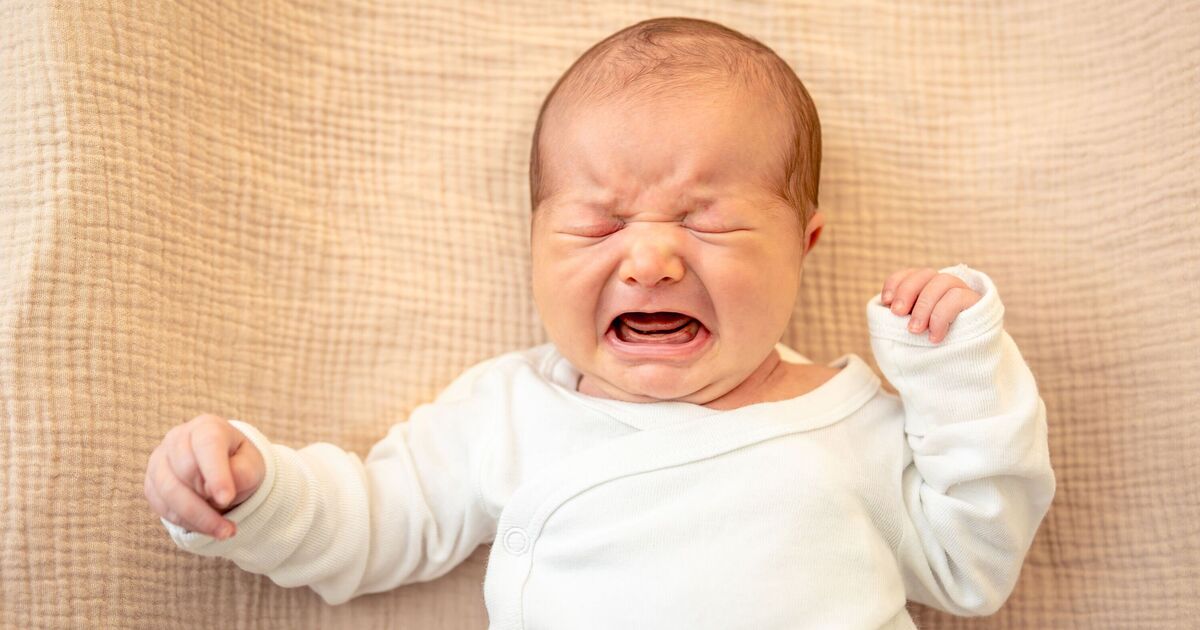Parents are often torn over the question of whether to allow their baby to share a bed with them.
The issue can be quite challenging to navigate, but health visitor Ruth Watts, known as @ruthwattshv on TikTok, has offered her expert opinion to put parents’ minds at ease. Renowned for her online parenting tips, Ruth provided valuable insights on safe sleeping practices for infants.
She begins by highlighting the NHS’s advice the “safest place” for a baby to sleep is in a clear crib. However, she also shared her personal stance, which she typically reserves for outside her professional environment.
Ruth said: “Now, the NICE guidelines, UNICEF and the Lullaby Trust, who all shape our practice as nurses and midwives, states that nine out of 10 parents on their parenting journey will bed share or co-sleep at some point. 40% of which are doing it unsafely.
“So, the NICE guidelines state it is a nurse and a health visitor and a midwife’s duty that, when we see people around the postnatal period, whether that is postnatally or antenatally, we should be discussing and teaching parents how to bed share safely.”
She added: “The NICE guidelines specifically state we should not be telling parents ‘you cannot co-sleep or bed share’, other than we need to be teaching them how to do it safely, and there are instances in which it is unsafe, and we need to educate parents on that as well.
“Now, my personal opinion is that a lot of babies when brought home from hospital do not want to be put down in their crib, and then parents feel like they’re failing, or that there’s something wrong with their baby, rather than educating their parents on how to bed share safely, and telling them that actually, we are mammals and, if done safely, it is one of the safest ways to sleep.
“If done safely and, of course, there are times in which you cannot co-sleep due to reasons such as babies born at their birth weight or your smoking or the bed is not firm, flat and waterproof.”
If there are risks involved, she said it’s best not to do it, so safety is always key. The thing that increases “risk” when co-sleeping is doing it “unsafely”, according to Ruth.
When you do anything that’s classed as “unsafe”, this can increase the risk of something going wrong. But she emphasised it’s not the act of bed sharing that causes problems itself.
Ruth added it’s “never safe” for you to fall asleep on the sofa with your baby. This is something that increases the risk of suffocation “dramatically”.
She admitted she co-slept with both of her children, and believes it’s a “lovely” way to sleep, as long as it’s done safely. According to Ruth, it’s the “ideal” place for baby brain development, and also works to help with attachment too.
The video has been viewed thousands of times since it was shared, and people were quick to comment too. It’s clear they had lots of different views.
One parent shared their experience, writing: “We bed share. The only way we get sleep. Of course, safe sleep, and we’re 15 months into bed sharing now with no end in sight.”
Another shared: “I’ve never co-slept. I feel like my bed is my space. I give everything to my child, but my bed? No chance – that’s my time.”
What does the NHS say about co-sleeping?
The NHS offers specific advice on the topic of bed-sharing, underlining the importance of a safe sleeping environment for babies, particularly during the critical first six months. They advise parents that, while it’s natural to want to cuddle or feed your baby in bed, the optimal place for a baby to sleep is in their cot, on their back, in the same room as their parents.
Nevertheless, circumstances may sometimes require parents to share their bed with their baby. If so, it’s crucial to do this safely, avoiding bed-sharing especially when extremely tired, or if the baby shows any signs of fever or illness.
Babies who were born before reaching full term at 37 weeks or those with a low birthweight – under 2.5kg or 5.5lbs – are also at higher risk. In addition, the NHS warns about the considerably heightened risk of Sudden Infant Death Syndrome (SIDS) associated with falling asleep with a baby on a sofa or armchair.
Co-sleeping carries significant risks if either you or your partner have indulged in certain activities, such as:
- Smoking
- Drinking alcohol
- Taking recreational drugs
- Taking any medication that causes drowsiness










